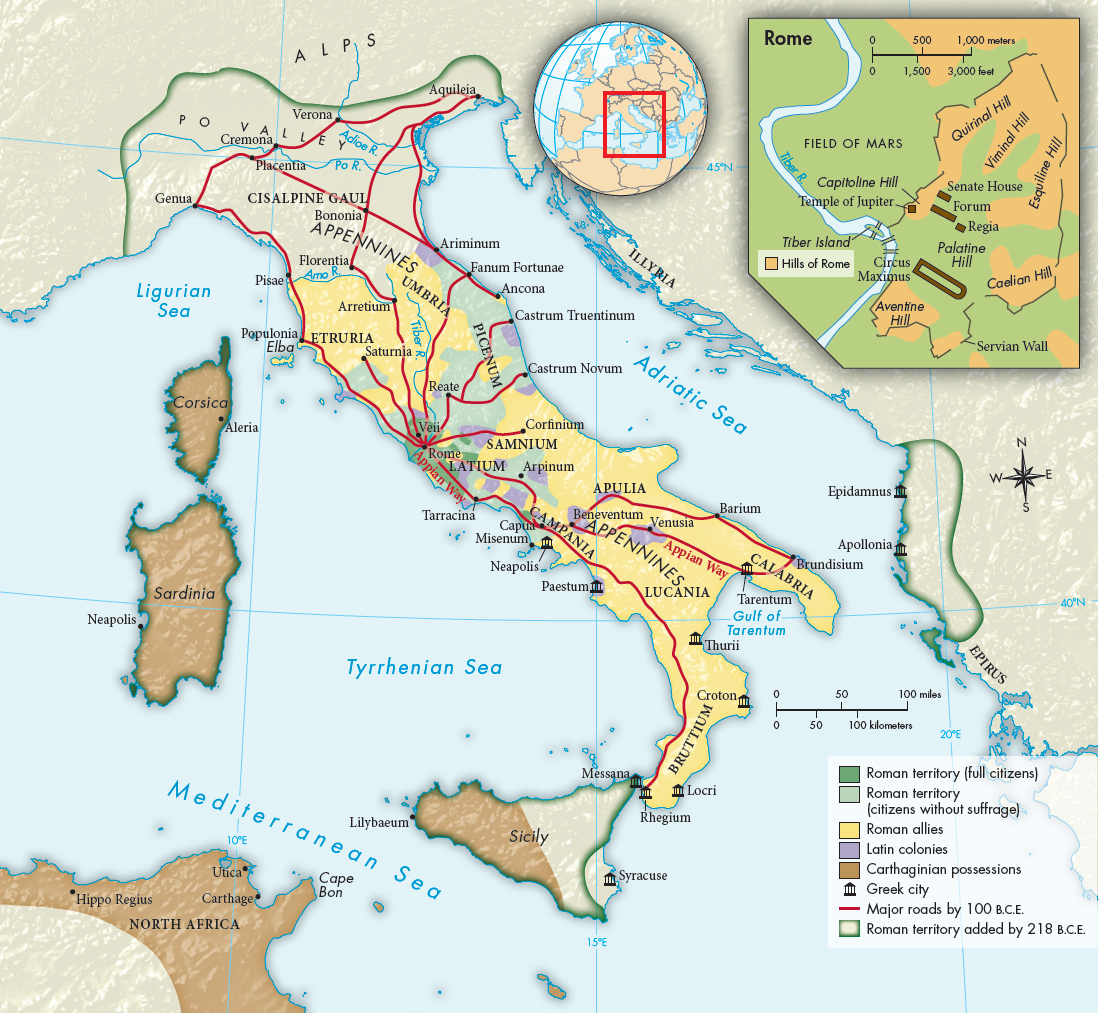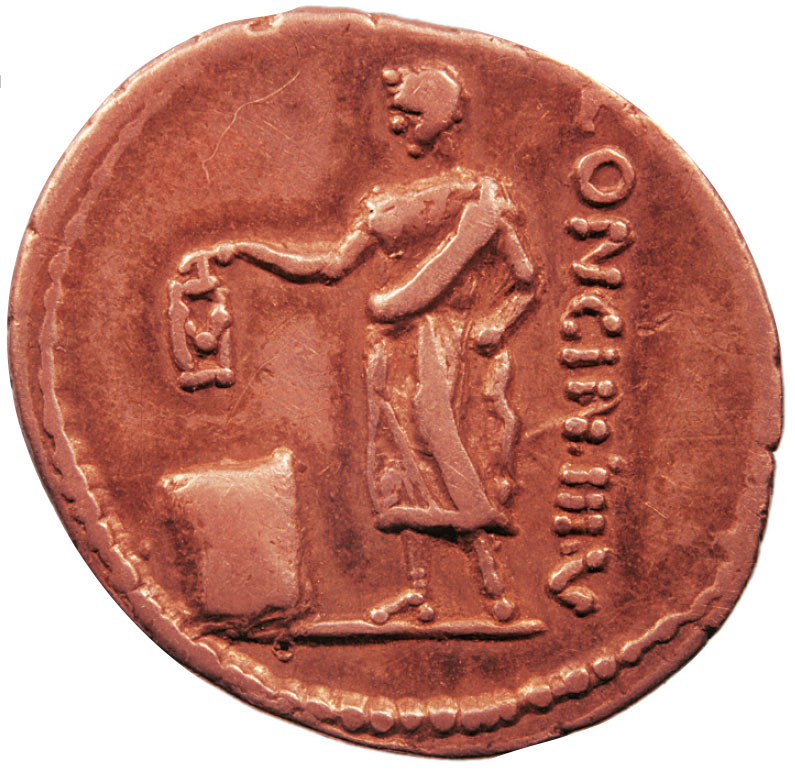A History of World Societies:
Printed Page 149
A History of World Societies Value
Edition: Printed Page 146
The Roman Conquest of Italy
In the years following the establishment of the republic, the Romans fought numerous wars with their neighbors on the Italian peninsula. The Roman army was made up primarily of citizens of Rome, who were organized for military campaigns into legions; those who could afford it bought their own weapons and armor. War also involved diplomacy, at which the Romans became masters. At an early date they learned the value of alliances, which became a distinguishing feature of Roman expansion in Italy.
In 387 B.C.E. the Romans suffered a major setback when the Celts — or Gauls, as the Romans called them — invaded the Italian peninsula from the north, swept aside a Roman army, and sacked the city of Rome. More intent on loot than land, the Celts agreed to abandon Rome in return for a thousand pounds of gold. In the century that followed, the Romans rebuilt their city and recouped their losses. They brought Latium and their Latin allies fully under their control and conquered Etruria. In a series of bitter wars the Romans also subdued southern Italy, including much of Magna Graecia, and then turned north. Their superior military institutions, organization, and manpower allowed them to conquer or bring under their influence most of Italy by about 265 B.C.E. (Map 6.1).


As they expanded their territory, the Romans spread their religious traditions throughout Italy, blending them with local beliefs and practices. Religion for the Romans was largely a matter of honoring the state and the family. The main goal of religion was to secure the peace of the gods, what was termed pax deorum, and to harness divine power for public and private enterprises. Religious rituals were an important way of expressing common values, which for Romans meant those evident in their foundation myths: bravery, morality, seriousness, family, and home. In the city of Rome the shrine of Vesta, the goddess of hearth and home, was tended by six “vestal virgins” chosen from patrician families. Roman military losses were sometimes blamed on inattention by the vestal virgins, another link between female honor and the Roman state. Victorious generals made sure to honor the gods of people they had conquered and by doing so transformed them into gods they could also call on for assistance in their future campaigns. As the Romans conquered the cities of Magna Graecia, the Greek deities were absorbed into the Roman pantheon.
Once they had conquered an area, the Romans did what the Persians had earlier done to help cement their new territory: they built roads. Roman roads facilitated the flow of communication, trade, and armies from the capital to outlying areas. They were the tangible sinews of unity, and many were marvels of engineering, as were the stone bridges the Romans built over Italy’s many rivers.
In politics the Romans shared full Roman citizenship with many of their oldest allies, particularly the inhabitants of the cities of Latium. In other instances they granted citizenship without the franchise, that is, without the right to vote or hold Roman office. These allies were subject to Roman taxes and calls for military service but ran their own local affairs.